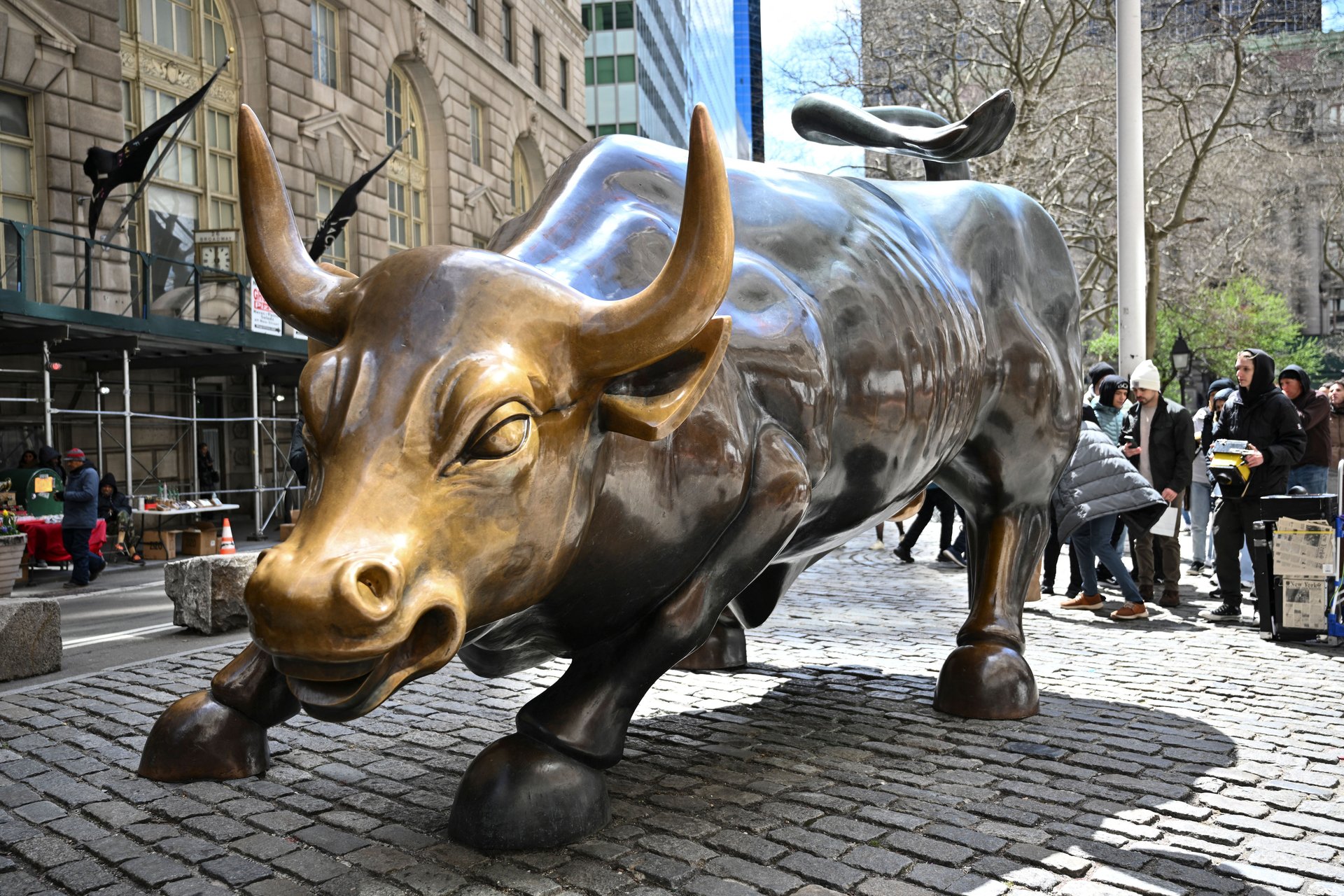Wall Street is winning the trade war
The unpredictability of Trump-era trade policy has created a kind of dream environment for trading desks

Angela Weiss/AFP via Getty Images
The big banks’ second-quarter earnings tell a clear story: Wall Street is profiting handsomely from chaos.
Suggested Reading
President Donald Trump’s unpredictable tariff regime — kicked off with April’s “Liberation Day” announcement — has driven months of volatility into global markets. And when markets move, big banks get paid.
Related Content
Eye-popping trading revenues, across the board
Together, Goldman Sachs, JPMorgan, Citigroup, Wells Fargo, and Morgan Stanley hauled in nearly $34 billion in trading revenue this quarter, a 17% jump over the same period last year. Equities and FICC (fixed income, currencies, and commodities) desks up and down the Street have feasted on tariff-induced churn. Goldman alone reported a 36% surge in equities trading revenue and posted earnings per share of $10.91, far above forecasts.
JPMorgan, which kicked off earnings season Tuesday, also blew past expectations with $14.2 billion in profit. Trading revenue hit records in both equities (+15%) and fixed income (+14%), while its consumer division notched a 23% rise in profit — evidence that upper-income Americans, at least, are still spending.
Citigroup joined the parade with its best second-quarter trading haul since 2020. Equities trading rose 6%, while FICC jumped 20%. Even BlackRock got a boost, hitting a record $12.5 trillion in assets under management, though a single $52 billion client withdrawal raised eyebrows – because at some point, it's possible, the tide is going to turn. Blackrock framed the redemption as a single, low-fee, nonrecurring event, but it’s a possible signpost for markets nonetheless.
Perhaps that is why the banks’ CEOs issued rather downbeat warnings alongside their upbeat results. JPMorgan CEO Jamie Dimon flagged “a number of uncertain forces,” including trade instability, geopolitical tension, and elevated asset prices. Goldman’s David Solomon echoed the concern, noting that “developments rarely unfold in a straight line.”
Wells Fargo’s results — while solid — lacked the trading bump of its peers. The bank lowered its full-year net interest income guidance to flat. Management spoke of customers reluctant to borrow in the face of so much uncertainty. And in consumer credit, cracks are forming, too: Goldman’s division posted a net loss, with credit card charge-offs climbing to 6.1%.
The takeaway
Wall Street is thriving, for now. The very unpredictability of Trump-era policy — sweeping announcements combined with chaotic execution, unclear rules, constant reversals, governing by social-media post— has unintentionally created a kind of dream environment for trading desks. It’s a bull market that doesn’t feel like a bull market, and is nevertheless a bull market, at least of a sort.
And the music might not stop anytime soon. Even if inflation accelerates or investors rotate out of U.S. equities, that doesn’t mean markets will quiet down, only that they’ll churn in different directions. "Risk-on" or "risk-off," uncertainty fuels movement, and movement fuels fees. As long as policy remains unpredictable and capital remains mobile, trading desks don’t need a bull market to win. They just need a messy one.
